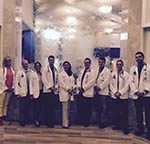We call them “SPs,” everyday people who play a key role in helping our students become outstanding, compassionate physicians. SP stands for standardized patient, actors who help educate UCF medical students in our Clinical Skills and Simulation Center in Lake Nona. They pretend to be patients with conditions such as chest pain, a rash and depression. By caring for actors, our students learn how to take patient histories, do physical exams and, most importantly, to communicate effectively and empathetically with people who are ill and injured.
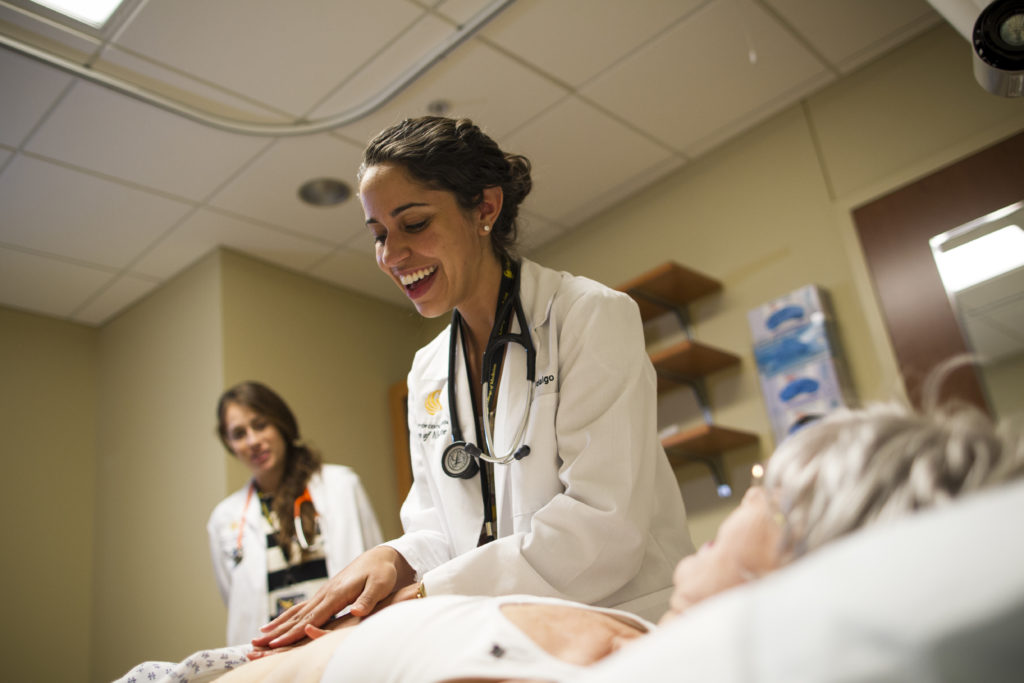
Simulation has been used for a long time to train professionals such as airline pilots. As a medical school, we use simulation to give our students real-world experiences in a safe environment long before they ever reach hospital wards and clinics. When I was in medical school years ago, our learning process was “see one, do one, teach one.” You learned a skill, you did it, and then you taught someone else. There was little time for practice or repetition before you were caring for real patients. That always upset me because I believed there had to be a better way to train future physicians and provide the highest quality of care.
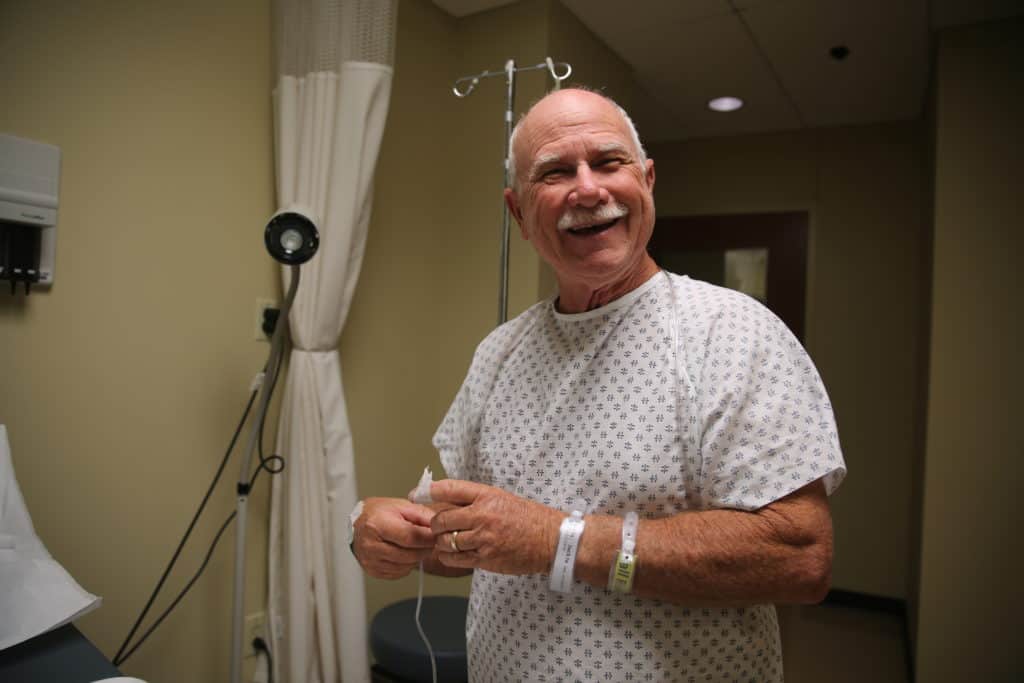 Today at UCF, students learn, practice and develop their clinical skills from their first weeks of medical school. They learn how to take vitals by working on computerized mannequins that can speak, sweat and react to hundreds of different drugs. They develop their bedside manners. Working with actors also helps students learn the art of breaking bad news to a patient and caring for sometimes difficult patients and their family members. With the simulation center, students can make mistakes in a safe environment – and learn from those mistakes. We record their interactions so they can see how they responded and how other students might have performed better. And, in the center, students get ongoing real-time feedback from their faculty physicians. Unlike my medical school training, UCF students “see one and do many.”
Today at UCF, students learn, practice and develop their clinical skills from their first weeks of medical school. They learn how to take vitals by working on computerized mannequins that can speak, sweat and react to hundreds of different drugs. They develop their bedside manners. Working with actors also helps students learn the art of breaking bad news to a patient and caring for sometimes difficult patients and their family members. With the simulation center, students can make mistakes in a safe environment – and learn from those mistakes. We record their interactions so they can see how they responded and how other students might have performed better. And, in the center, students get ongoing real-time feedback from their faculty physicians. Unlike my medical school training, UCF students “see one and do many.”
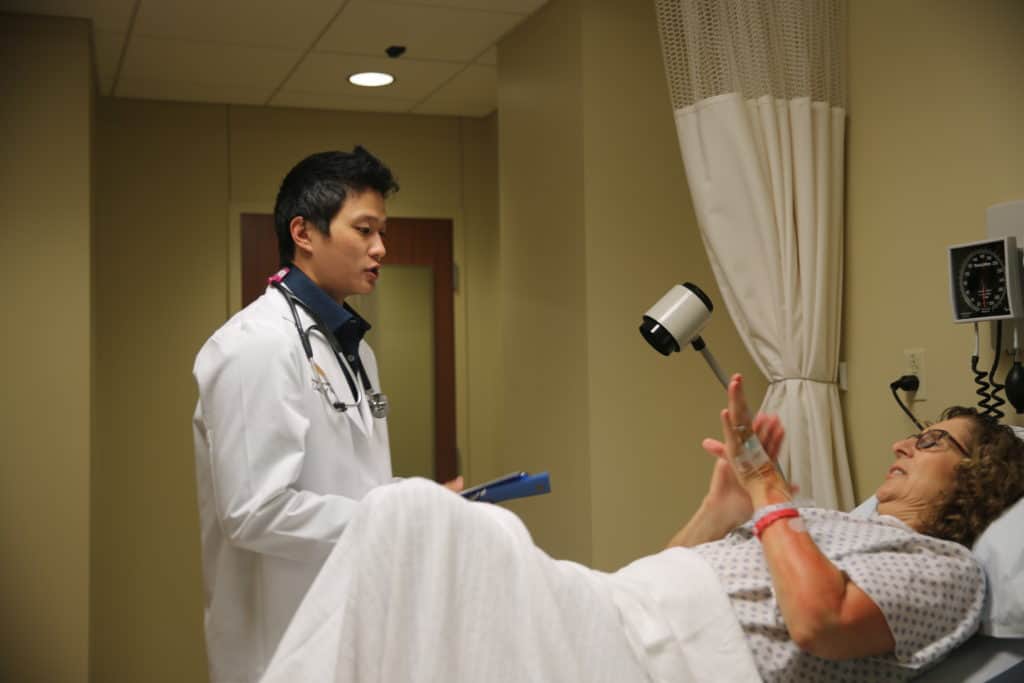 Our 104 standardized patients range in age from 20 to 79. SPs are trained and paid and follow a script when they work with medical students so learning objectives are met. They also evaluate our students – providing feedback on how well the student did a physical exam, engaged with the patient and communicated. Some of our SPs are actual community actors. Some are former healthcare professionals. Others are retirees who want to give back.
Our 104 standardized patients range in age from 20 to 79. SPs are trained and paid and follow a script when they work with medical students so learning objectives are met. They also evaluate our students – providing feedback on how well the student did a physical exam, engaged with the patient and communicated. Some of our SPs are actual community actors. Some are former healthcare professionals. Others are retirees who want to give back.
Recently, David Shaheen, a standardized patient who has helped UCF medical students since we started classes in 2009, was honored for his efforts in building a healthier community. A retired NASA bookkeeper, Shaheen is known as “SP Dave” at the med school. He received a “Boldy” award from Growing Bolder, an Orlando-based media group dedicated to inspiring people to live extraordinary lives as they age. As he received the “Building a Better Community Award” presented by the College of Medicine, Shaheen said he became an SP after retiring because he loved watching students grow from young, uncertain first-years to mature, confident doctors. He’s even attended graduation to honor our Physician Knights as they take the next step on their journey.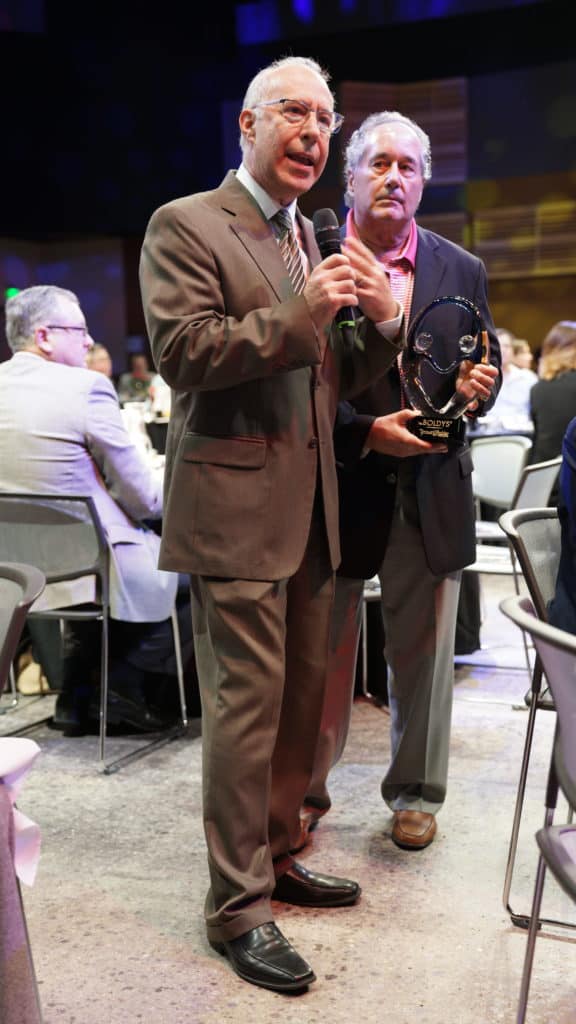
It takes a village to create a physician. At UCF, that village includes people of all ages and all walks of life who pretend to be sick so our students can become healers.
